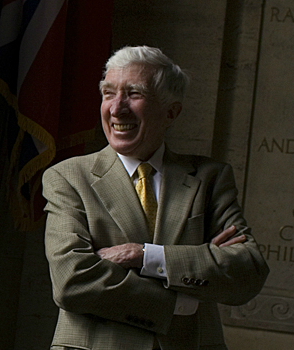Introduction
In this selection, first published in New England Monthly in the late 1980s and reprinted in his book Odd Jobs: Essays and Criticism (1991), the prolific 20th-century novelist, poet, and literary critic John Updike (1932–2009) offers reflections on the place of the Fourth of July in the rhythm of our summer holidays and on the ways in which we celebrate it.1 He comments on the following topics, among others, all of which merit conversation: the summer heat in Philadelphia, 1776; the clothing of summertime and freedom—the “freedom felt in the body itself”; the “sadness” of fireworks; the uniquely delayed climax of this holiday; bonfires, and their association with independence; the varying, yet simultaneous, ways of celebrating the Fourth across the country; the “long day’s dry American silence.”
In his discussion of bonfires, what does Updike mean by suggesting that “conflagrations and constitutions keep close company,” or that “established statehood rests upon triumphant violence”? What, according to Updike, is the virtue of this holiday? What does he mean by calling it “the unmoving pivot” of the American year? Why does he say, “the Fourth of July makes us a little wary, a touch cranky”? Do you agree with his judgments and claims? Is there something missing in Updike’s account of how we celebrate the Fourth? If so, what should be added? How do you celebrate the Fourth? Can you do something to make it more meaningful?



Post a Comment